Alongside the Pixel 8 Pro, Google also debuted the Pixel 8 during their Made By Google event. Positioned as their more mainstream offering for regular users, it still gets a number of upgrades across the board, and thanks to a smaller size than before may also be the new go-to option for those wanting a compact flagship smartphone.
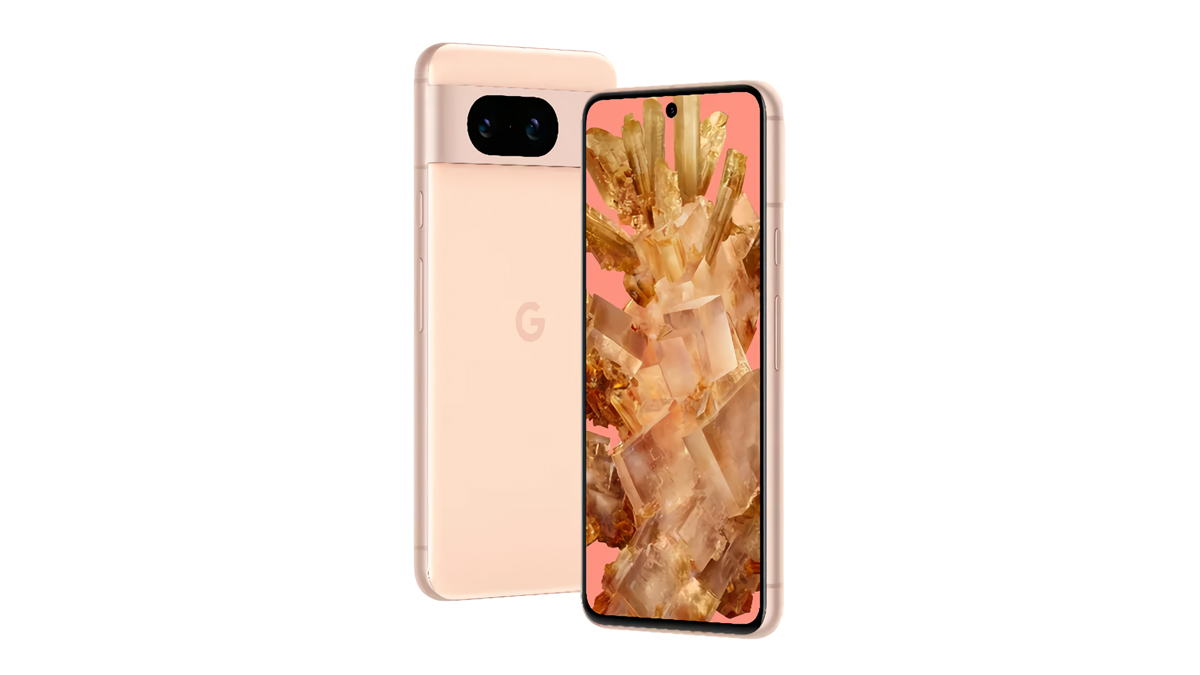
When you first take a look at the Pixel 8, you’re greeting a 6.2-inch Actua OLED display—this is Google’s new name for its display panels, with the Pixel 8 Pro getting a ‘Super Actua’ display instead. Despite the lack of the ‘Super’ prefix, the Pixel 8’s screen is still quite decent, with an FHD+ resolution in a 20:9 aspect ratio for a pixel density of 428ppi. It’s also able to push up to a 120Hz refresh rate, up from the 90Hz panels on previous non-Pro Pixels. The display is capable of a HDR brightness of 1,400nits and a peak brightness of 2,000nits, with HDR support and a contrast ratio over 1,000,000:1. You’ll find a layer of Corning Gorilla Glass Victus on both the front and back for scratch resistance too.
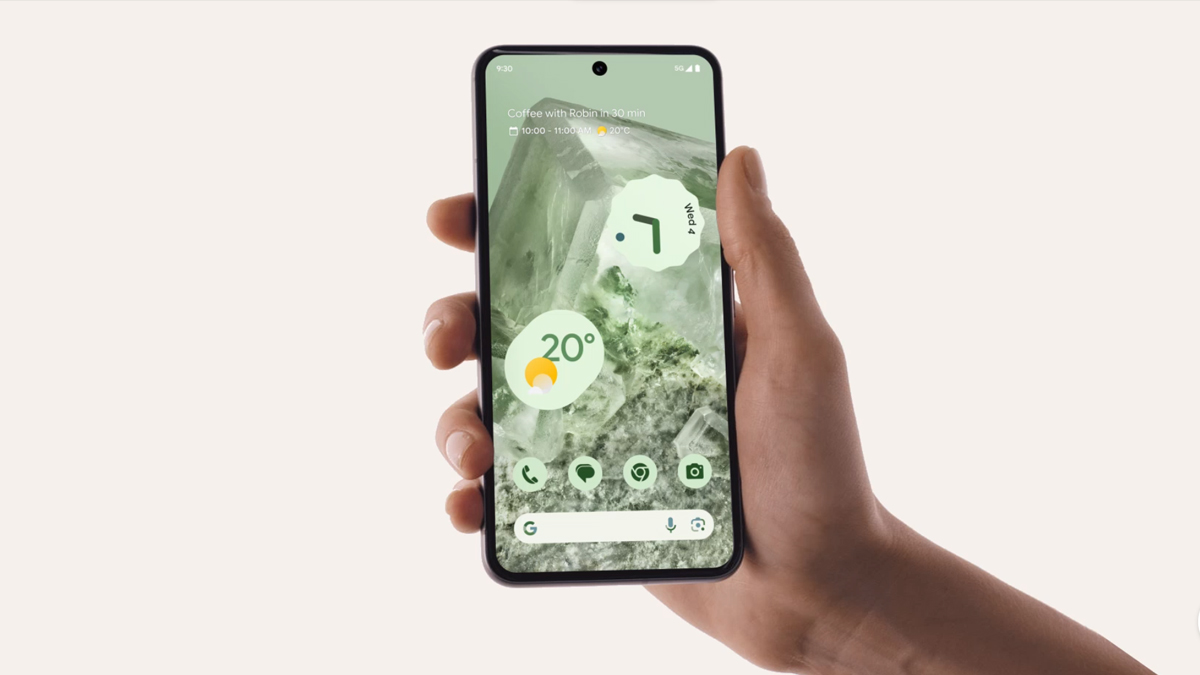
Powering the Pixel 8 meanwhile is the same Google Tensor G3 processor found in the Pixel 8 Pro, mated to 8GB of LPDDR5X RAM and up to 256GB of UFS 3.1 storage. While perhaps not the most powerful in terms of raw performance, Google is packing as much AI smarts as it possibly can with the Tensor G3. The Pixel 8 will also be getting the new Google Assistant with Bard later this year, with Google integrating generative AI into its personal assistant, allowing it to do more tasks such as translate languages in real time, answer calls, take notes and more.
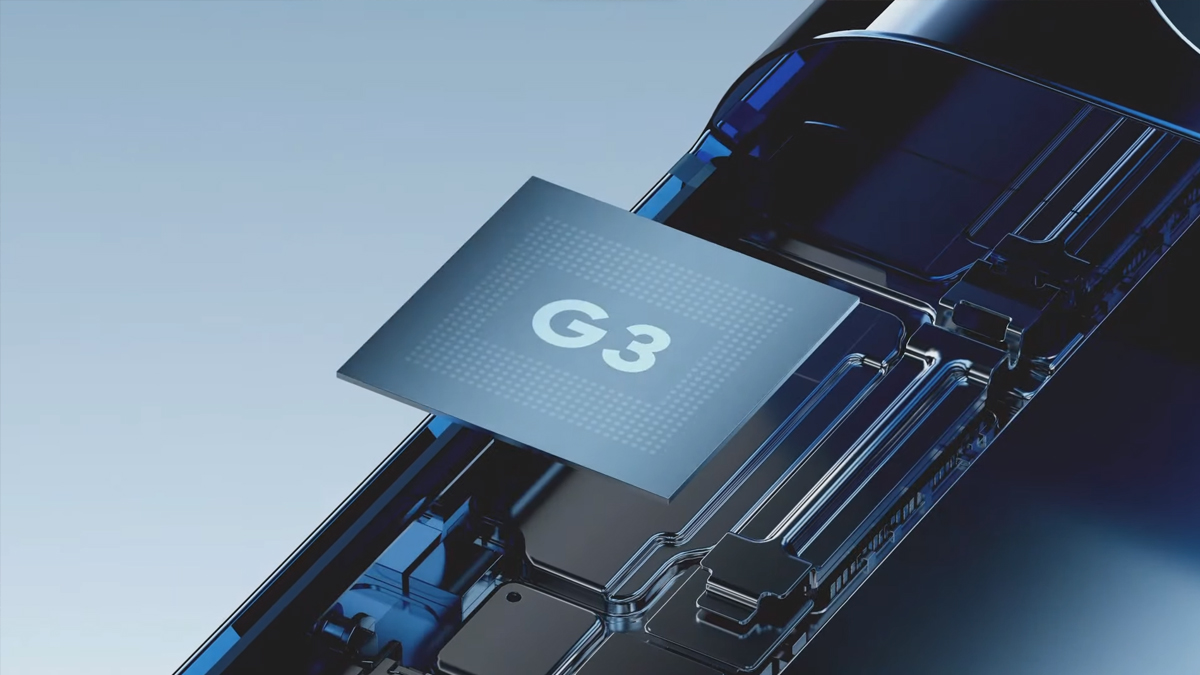
Also just like the Pixel 8 Pro, the Pixel 8 comes with Android 14 out of the box and will be getting the same incredible seven years of software support from Google. This means the Pixel 8 will be getting seven full major Android OS upgrades, seven years of security patches and seven years worth of Google’s Pixel Feature Drops. It’s a huge step up from Google’s previous guarantee of three major Android OS upgrades and five years of updates that Pixels of yesteryear received, and makes Google the top dog amongst major smartphone manufacturers in terms of software support.
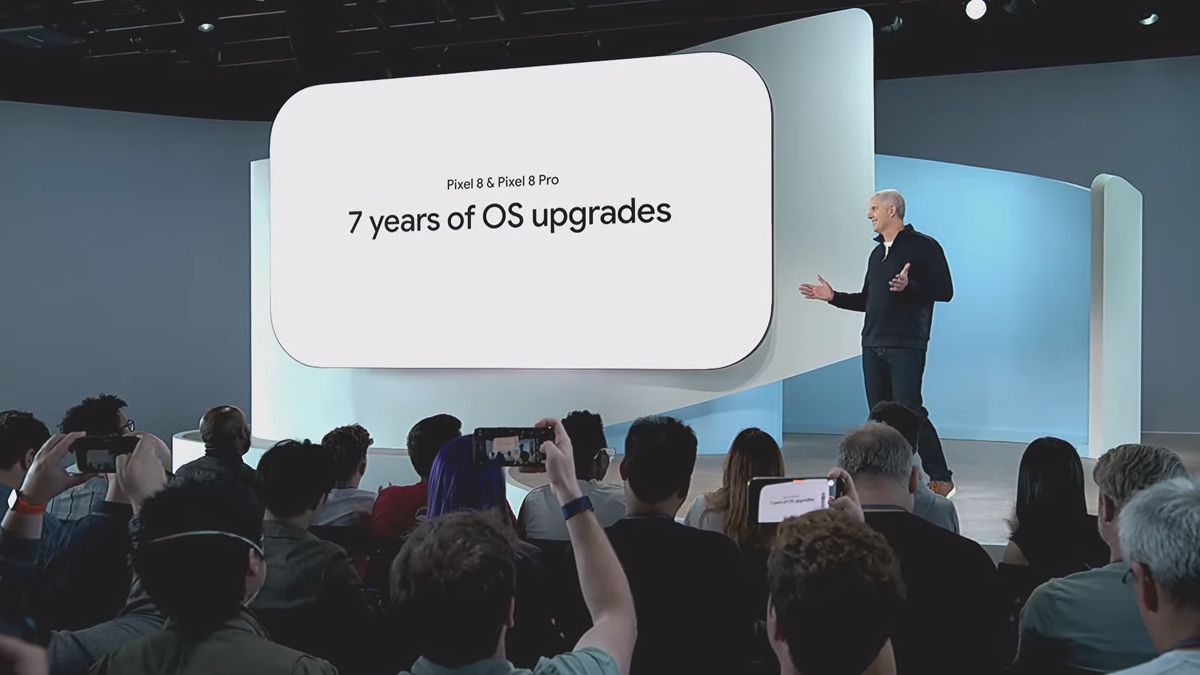
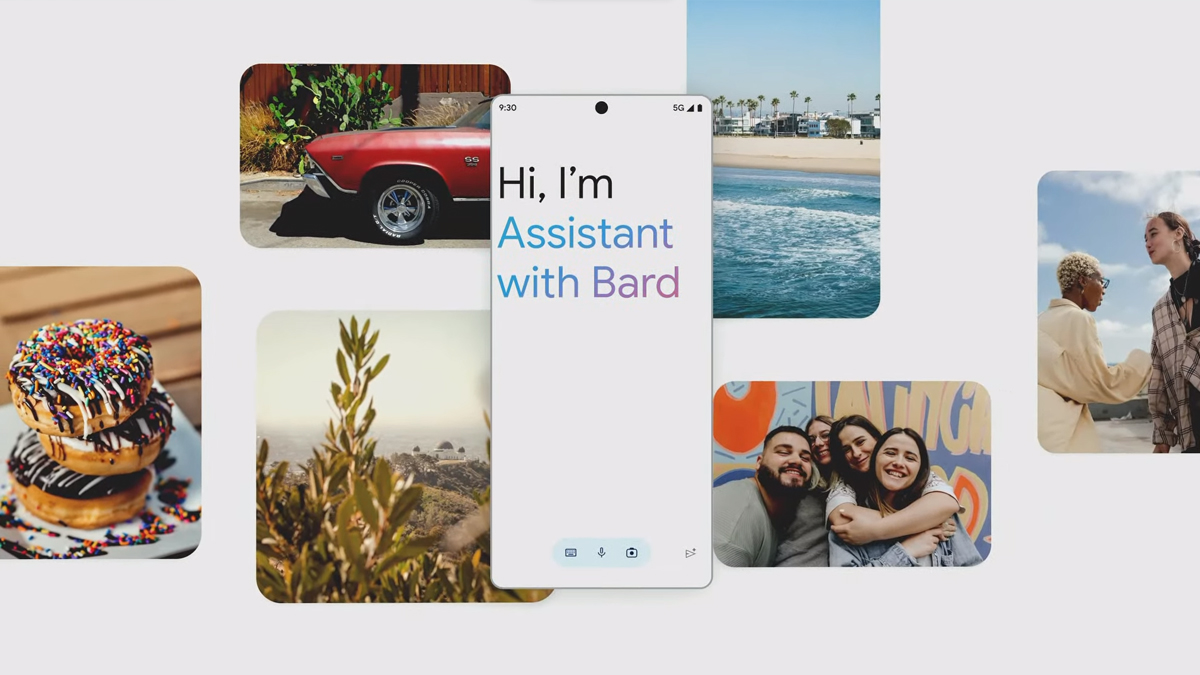
The Pixel 8 will come with an improved main camera, with its 50MP, f/1.68 shooter featuring a slightly wider aperture along with its 1/1.31-inch sensor—the same as its Pro stablemate. However, the Pixel 8’s auxiliary cameras aren’t as fancy as the Pixel 8 Pro, with the regular Pixel 8 getting coming with a 12MP, f/2.2 ultrawide shooter next to it that has a wider field of view compared to the Pixel 7 in that horizontal camera bar on the back. No telephoto here nor will you find a temperature sensor, though you do have the same 10.5MP, f2.2 front-facing camera as the Pixel 8 Pro.
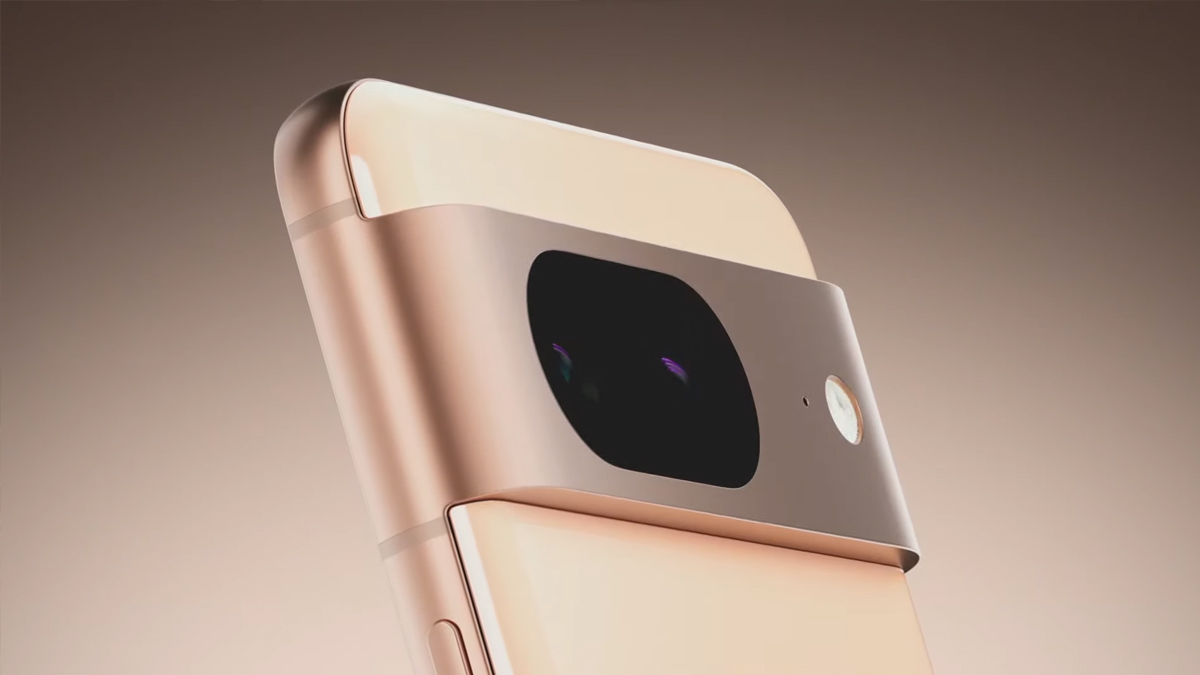
While it does lack a couple of features in the camera department such as pro controls and Video Boost, the regular Pixel 8 can still boast a number of new AI-powered software tools to make its already impressive cameras just that much better. You’ll find new features such as Best Take that combines multiple shots to create the best one possible, while Magic Editor uses AI to fix up shots after you’ve taken it. Audio Magic Eraser meanwhile builds on the previous Magic Eraser function, except this time it gets rid of background noise after shooting a video with the Pixel 8. The Pixel 8 is getting the Macro Focus mode too, the first time a non-Pro Pixel has gotten the feature.
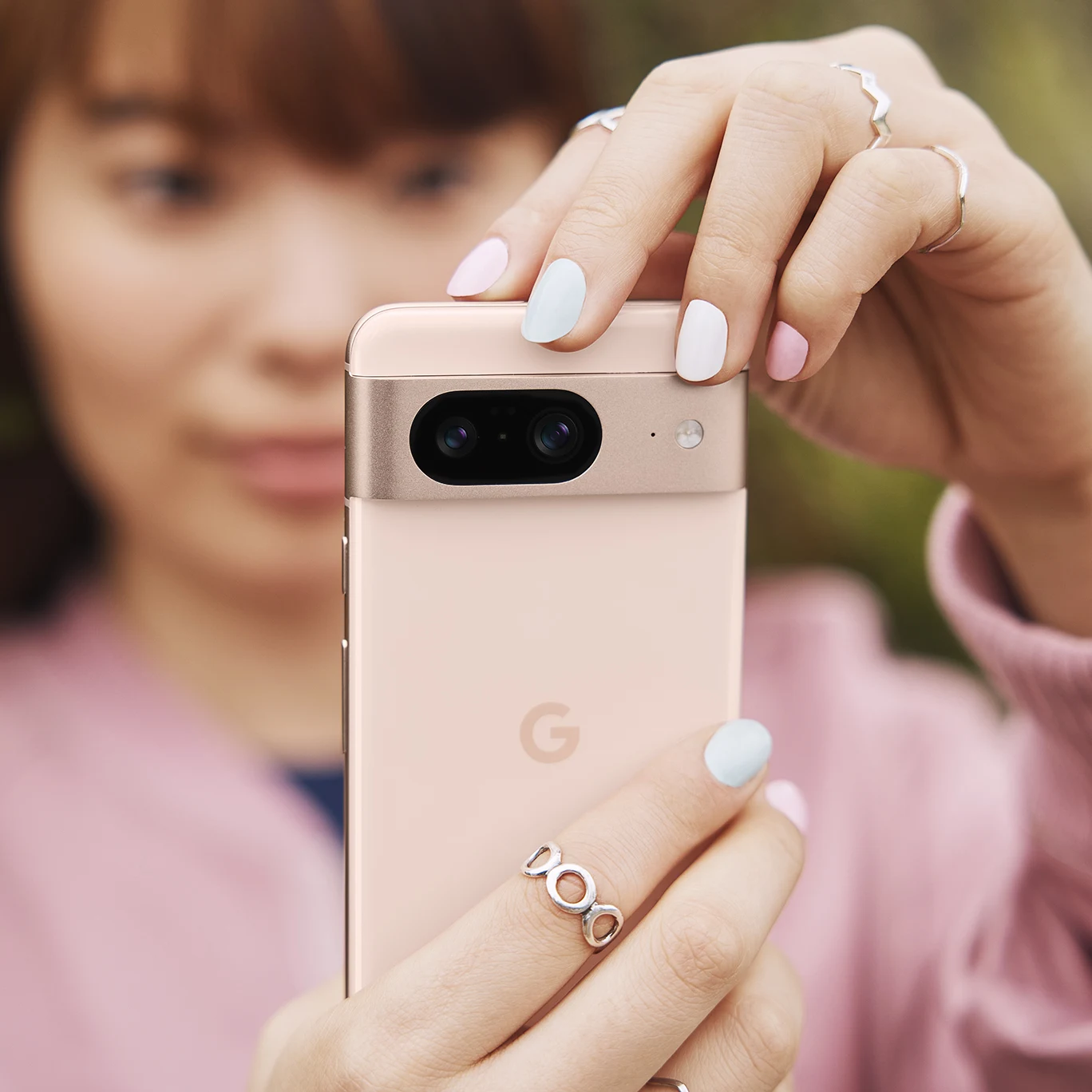

Other features of note here include a 4,575mAh battery that Google says will be good for ‘beyond 24-hours’ of battery life, with support for 27W fast wired charging, 18W wireless fast charging with a Pixel Stand, 12W wireless charging with Qi-certified chargers and reverse wireless charging. There’s an in-display fingerprint sensor too along with stereo speakers, an IP68 dust and water resistance rating and support for 5G, NFC, WiFi 7 and Bluetooth 5.3. The Pixel 8 weighs just 187g, measures 8.9mm thick and is available in Obsidian, Hazel and Rose colourways.
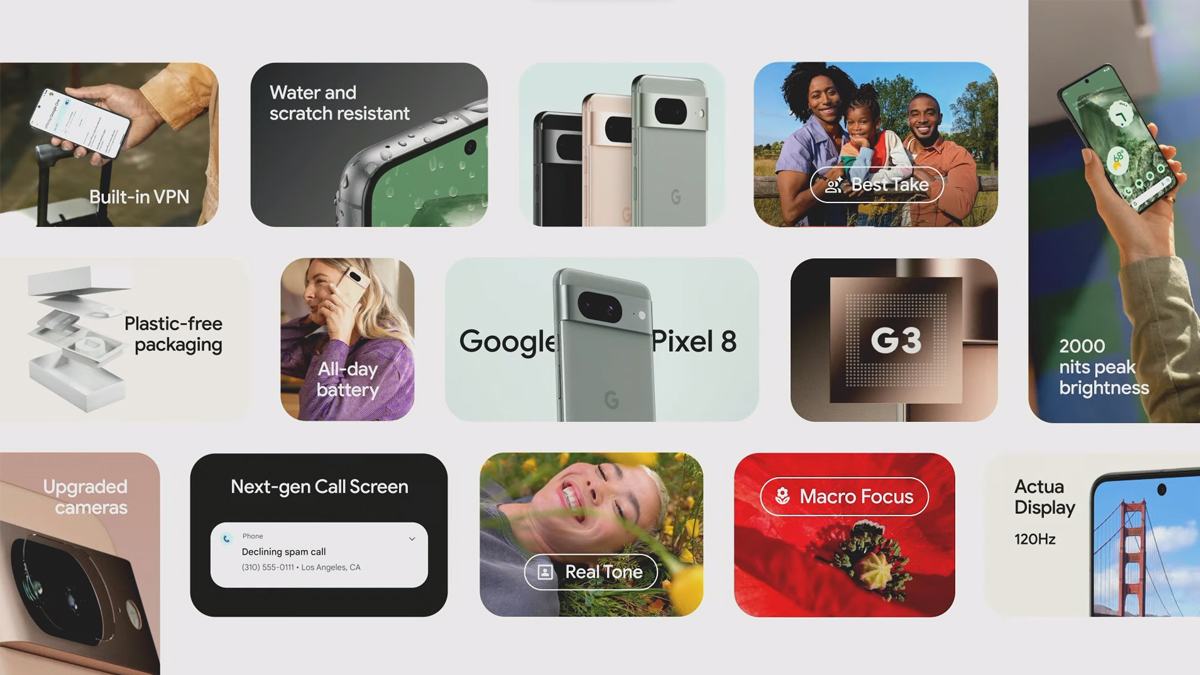
As is the case with the Pixel 8 Pro though, the Pixel 8 is not available in Malaysia in any official capacity. The closest place that has it would be Singapore, where it starts from SGD1,099 while in the US the Pixel 8 starts from USD699.






